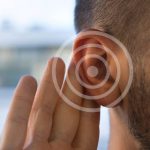
Folks who get regular exercise are less likely to become infected with COVID or develop a severe case requiring a hospital stay, a new study finds. Compared to couch potatoes, adults who adhere to U.S. physical activity guidelines have 10% lower odds of COVID infection and 27% lower odds of hospitalization from it, results in JAMA Network Open show. “This large, unique study in older adults as they navigated the onset of the pandemic provides important support for physical activity in preventing COVID-19 infection and hospitalization that may extend more broadly to enhanced immune function and lessening vulnerability to infections,” senior author Howard Sesso, an associate epidemiologist at Brigham and Women’s Hospital’s Division of Preventive Medicine in Boston, said in a news release. For the study, researchers tracked the health of more than 61,500 older adults involved in three ongoing clinical trials prior to the beginning of the COVID pandemic in 2020. The participants all reported on their lifestyles and exercise, including the time they spent on activities like biking, walking, running and climbing stairs. Using those self-reports, researchers categorized the participants as inactive, insufficiently active or sufficiently active, based on U.S. physical activity guidelines. The guidelines say that adults should get at least 150 to 300 minutes of moderate-intensity exercise or 75 to 150 minutes of vigorous-intensity exercise each week. Examples of moderate-intensity exercise… read on > read on >


















